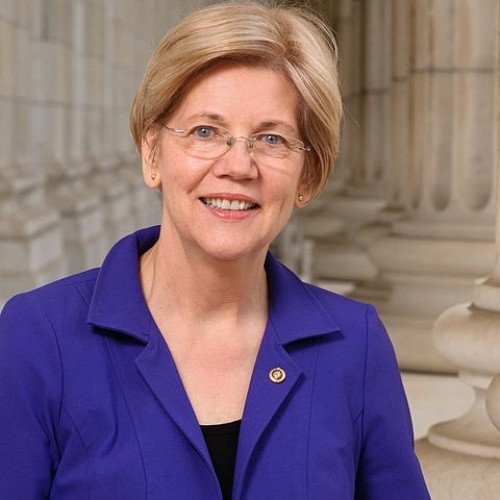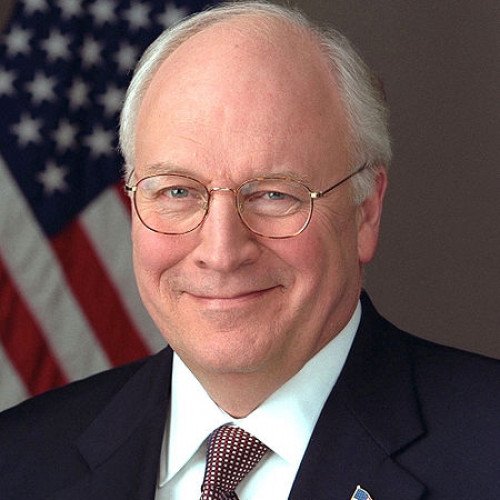Elizabeth Warren VS Dick Cheney

Elizabeth Warren
Elizabeth Ann Warren (née Herring; born June 22, 1949) is an American politician and former law professor (specializing in bankruptcy law) serving as the senior United States senator from Massachusetts, serving since 2013. A member of the Democratic Party and regarded as a progressive, Warren has focused on consumer protection, economic opportunity, and the social safety net while in the Senate. She was a candidate in the 2020 Democratic Party presidential primaries. Warren is a graduate of the University of Houston and Rutgers Law School and has taught law at several universities, including the University of Houston, the University of Texas at Austin, the University of Pennsylvania, and Harvard University. She was one of the most influential professors of bankruptcy law before beginning her political career. Warren has written eleven books and more than 100 articles.Her first foray into public policy began in 1995, when she worked to oppose what eventually became a 2005 act restricting bankruptcy access for individuals. During the late 2000s, Warren's national profile grew following her forceful public stances in favor of more stringent banking regulations after the financial crisis of 2007–08. She served as chair of the Congressional Oversight Panel of the Troubled Asset Relief Program, and she proposed and established the Consumer Financial Protection Bureau, for which she served as the first special advisor under President Barack Obama. In 2012, Warren defeated incumbent Republican Scott Brown and became the first female U.S. senator from Massachusetts. She won reelection by a wide margin in 2018, defeating Republican nominee Geoff Diehl. On February 9, 2019, Warren announced her candidacy in the 2020 United States presidential election. She was briefly considered the front-runner for the Democratic nomination in late 2019, but support for her campaign dwindled. She withdrew from the race on March 5, 2020, after Super Tuesday.
Statistics for this Xoptio

Dick Cheney
Richard Bruce Cheney ( CHAY-nee; born January 30, 1941) is an American politician and businessman who served as the 46th vice president of the United States from 2001 to 2009 under George W. Bush. He has been cited as the most powerful vice president in American history. He is also one of the most unpopular politicians in the history of the U.S., holding an approval rating of just 13% at the time of leaving office.Born in Lincoln, Nebraska, Cheney grew up there and later in Casper, Wyoming. He attended Yale and then the University of Wyoming, at the latter of which he earned a BA and an MA in Political Science. He began his political career as an intern for Congressman William A. Steiger, eventually working his way into the White House during the Nixon and Ford administrations. He served as White House chief of staff from 1975 to 1977. In 1978, Cheney was elected to the U.S. House of Representatives. He represented Wyoming's at-large congressional district from 1979 to 1989, briefly serving as House minority whip in 1989. Cheney was selected to be the secretary of defense during the presidency of George H. W. Bush, holding the position for the majority of Bush's term from 1989 to 1993. During his time in the Department of Defense, Cheney oversaw the 1991 Operation Desert Storm, among other actions. Out of office during the Clinton administration, Cheney was the Chairman and CEO of Halliburton Company from 1995 to 2000. In July 2000, Cheney was chosen by presumptive Republican presidential nominee George W. Bush as his running mate in the 2000 presidential election. They defeated their Democratic opponents, incumbent Vice President Al Gore and Senator Joe Lieberman. In 2004 Cheney was reelected to his second term as vice president with Bush as president, defeating their Democratic opponents Senators John Kerry and John Edwards. During Cheney's tenure as vice president, he played a leading behind-the-scenes role in the George W. Bush administration's response to the September 11 attacks and coordination of the Global War on Terrorism. He was an early proponent of invading Iraq, alleging that the Saddam Hussein regime possessed a weapons of mass destruction program (no active WMDs were in Iraq) and the Hussein regime had an operational relationship with Al-Qaeda (even though there was scant credible evidence of such a relationship at the time). He also pressured the intelligence community to provide intelligence consistent with the administration's rationales for invading Iraq. Cheney was often criticized for the Bush Administration's policies regarding the campaign against terrorism, and for his support of wiretapping by the National Security Agency (NSA) and of torture. He became at odds with President Bush's position against same-sex marriage in 2004.